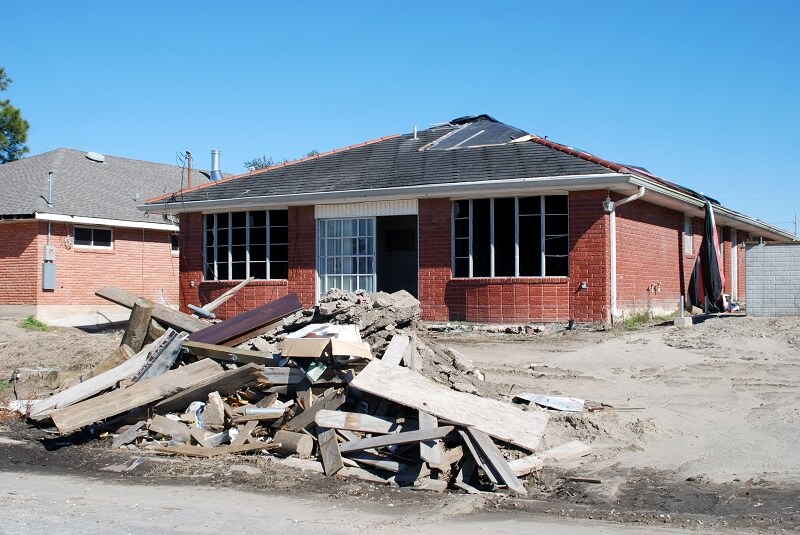Hurricane Preparedness For Real Estate Investors

How can real estate investors be better prepared to deal with hurricanes?
No matter what you invest in there are risk. In real estate one of those risks is natural disasters. That can be earthquakes and wildfires in California, tornadoes in the midwest, blizzards in the north, sinkholes in central Florida, and hurricanes in the south and east. Fortunately, these risks can be far less of a threat or damaging, if investors are prepared. What can be done to limit the damage, and turn the challenges into opportunities?
Emergency Planning
There are some things we can’t control in life and real estate. That includes the direction of the market, unethical players, and hurricanes. Yet, it is on us to be prepared, to educate ourselves, and to expect the unexpected, and be ready to champion it.
Every real estate business and investor should have an emergency plan. If you live in, or have property in any hurricane zones, up the east coast, or across the south, that should include a hurricane specific emergency and business continuity plan. THose with sound plans cannot just be protected, and can thrive even more in the wake of these storms.
The plans should layout the systems and steps you and your team will take in advance of a storm, during it, and after. Then there is no scrambling, you’ll be organized, it will be far less stressful, and you’ll be best positioned for success.
Insurances
Not many investors love paying insurance premiums, but coverage can be vital when a storm hits. FEMA reports only 15% of those in the Harvey disaster zone in Houston had flood insurance. Regular homeowners’ insurance isn’t going to cover you. Consider flood, windstorm, and general business insurance or an umbrella policy which can insure your income as well as covering repairs. Be sure to check your coverage is adequate each year, and that your premiums are up to date.
Physical Property Preparations
Ahead of a storm real estate investors need to be diligent about protecting their property. Landscaping should be trimmed and cleared, along with any items involved in construction or rehabbing. Otherwise these projectiles can be used by the wind to pummel your property, or neighboring homes, resulting in lawsuits. Boarding up windows and using shutters is essential unless your property is really designed to withstand the most violent wind speeds. Tenants should be helped with preparations as well.
Team & Contractors
Having a great team and good contractor relationships can be make or break. They will likely be vital in helping prepare properties, and securing your other business assets and operations. After a storm you’ll need them to get out fast, document and report damage, secure properties and make immediate repairs. They should be equipped with all the materials you may need, and on call. After a storm hits building contractors will be booked out fast, and if you don’t have relationships with them, minor damage could completely total your assets by the time you can fix them, or will become so expensive that you can’t afford it.
Get Out & Be Safe
Get out of the way of these storms. They do not play. They can ramp up in intensity very fast like Harvey. They can switch directions rapidly. Just get far away, very early. Better to be safe than sorry. Be financially prepared for this. You may need a lot of gas, early flights, cash to stay in a hotel for an extended amount of time, and money to stock up and bring back supplies with you.
Insurance Claims
As soon as it is safe, get your team out to document damage. File your insurance claims fast, Get ahead of the pack, and the quickly extending processing times. Unfortunately, chances are that you may also need an attorney to help fight for what you are owed. It is the insurance company’s prerogative to pay out as little as possible, as late as possible, or not pay at all. You’ll be glad when you get the money, but anticipate it taking as long as months or years, and being far less than you expected. Have a plan to cover the gap.
Dealing with the Aftermath
The most dangerous and trying parts of a hurricane are often in the weeks following the storm. Utilities, basic supplies, and communication lines can be out for a long time. When people are scared, and get really hungry, they can do some pretty bad things. Especially when law enforcement is limited and is tied up.
There may be interruption in your income and banking. Be sure to reach out to creditors, business partners, staff, and tenants, and work out resolutions in advance.
What happens next will depend a lot on how prepared you were, and if you had a real plan and system for this.
New Opportunities
It is vital that real estate investors act from a position of service and ethics in these times. There will be immense opportunities for selling houses, leasing, buying, flipping, wholesaling, and private lending. Just make sure you are really creating win-win deals for everyone involved.